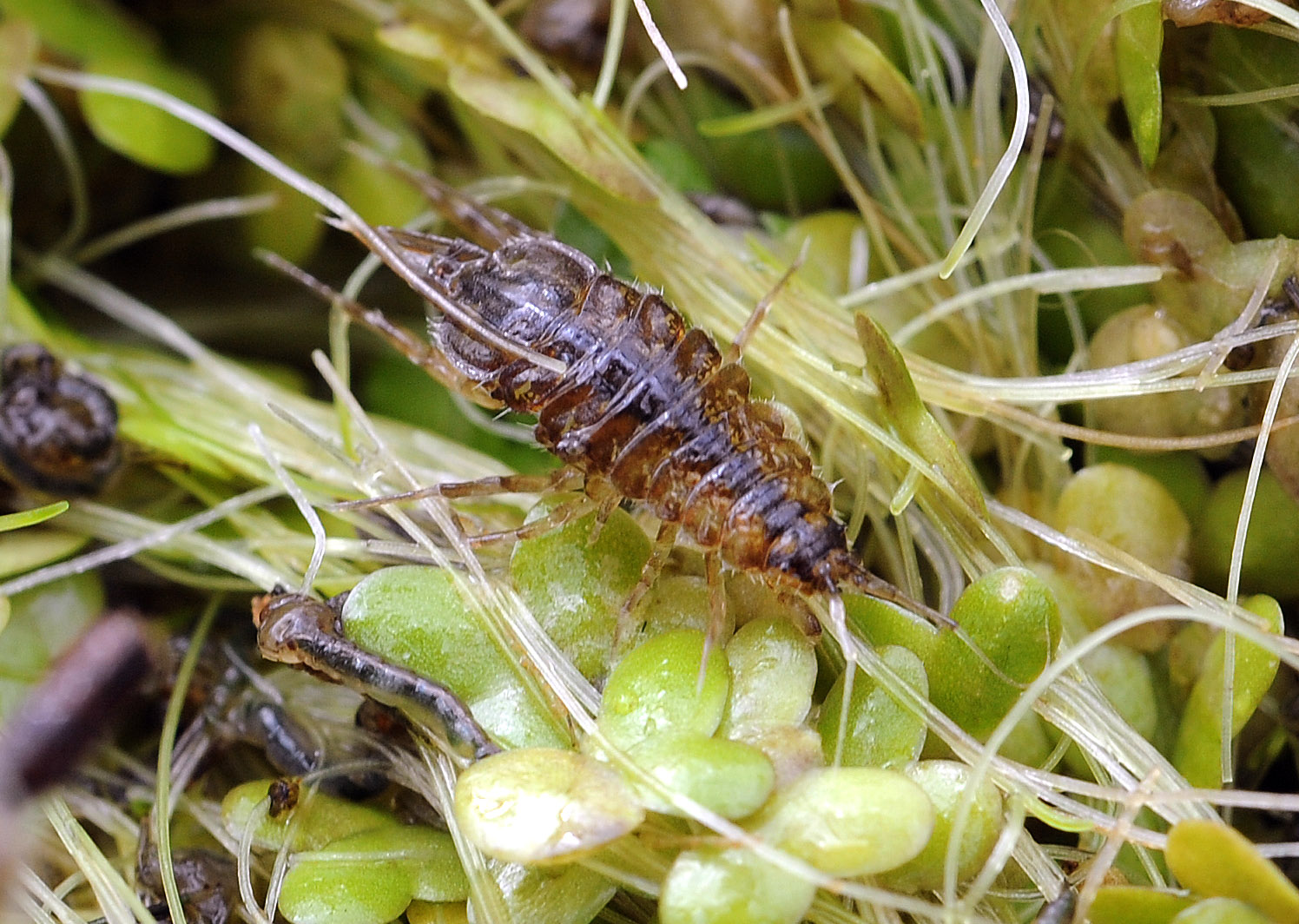A KILLER shrimp is believed to have BLINDED a pet cat after the unsuspecting feline drank from a garden pond.
Distraught Betty Evans was shocked when her beloved Blossom went blind after sipping water from the pond in her back-garden.

Miss Evans rushed her nine-year-old tortie to the vet when she noticed her eyes had turned bloodshot after drinking from the pool.
Despite vets desperate attempts to save Blossom’s sight, the cat has gone completely blind and Miss Evans is afraid her other pet cat, Sam, is also losing his sight.
The 58-year-old from Telford said when Sam started having problems with his eyesight, she and the vet suspected the killer shrimp could be responsible as both cats had been drinking from the pond.
She said: “A couple of weeks ago Blossom came in with a really bloodshot eye.
“Last week both eyes were affected and despite operations at the vets,she has now lost her sight.
“My other cat, Sam, is also now showing signs that his eyes might be going bad.”
The suspect shrimp, native to Eastern Europe, were put in the pool by some young children, who collected them on a fishing trip to a nearby stream.
Neither Miss Evans or the children had any idea the shrimp were dangerous, but the tiny invaders took over the pond in her garden, driving away all other wildlife.
“I got the shrimp after some young children went on a fishing trip and said they would bring me back something for my pond,” she said. “We never thought they would do any harm.
“I used to have lots of toads and frogs in my garden who would all come out at night and play, but now there are very few and they all look thin and yellow.
“The vet said it could have been the shrimp but I will have to get tests carried out on the pool.”
The predatory shrimp, known as Dikerogammarus villosus, was only found in the UK for the first time in September last year with warnings it could cause extinctions.
The crustacean, which can grow to 30 millimetres, is known for killing its prey but not eating it.
Trevor Renals, invasive species expert at the Environment Agency, said if invasive species, such as the killer shrimp, were not controlled there was a risk of losing some native species.
He said: “The Environment Agency will be working with other environment bodies as well as community and volunteer groups to manage the spread of these damaging plants and animals.”
The species kills native shrimp and young fish as well as blue-tailed damselfly nymphs, water hoglice, water boatman and fish leeches.
It is known as one of the worst alien invaders due to its voracious appetite which alters
the make-up of habitats it invades.




